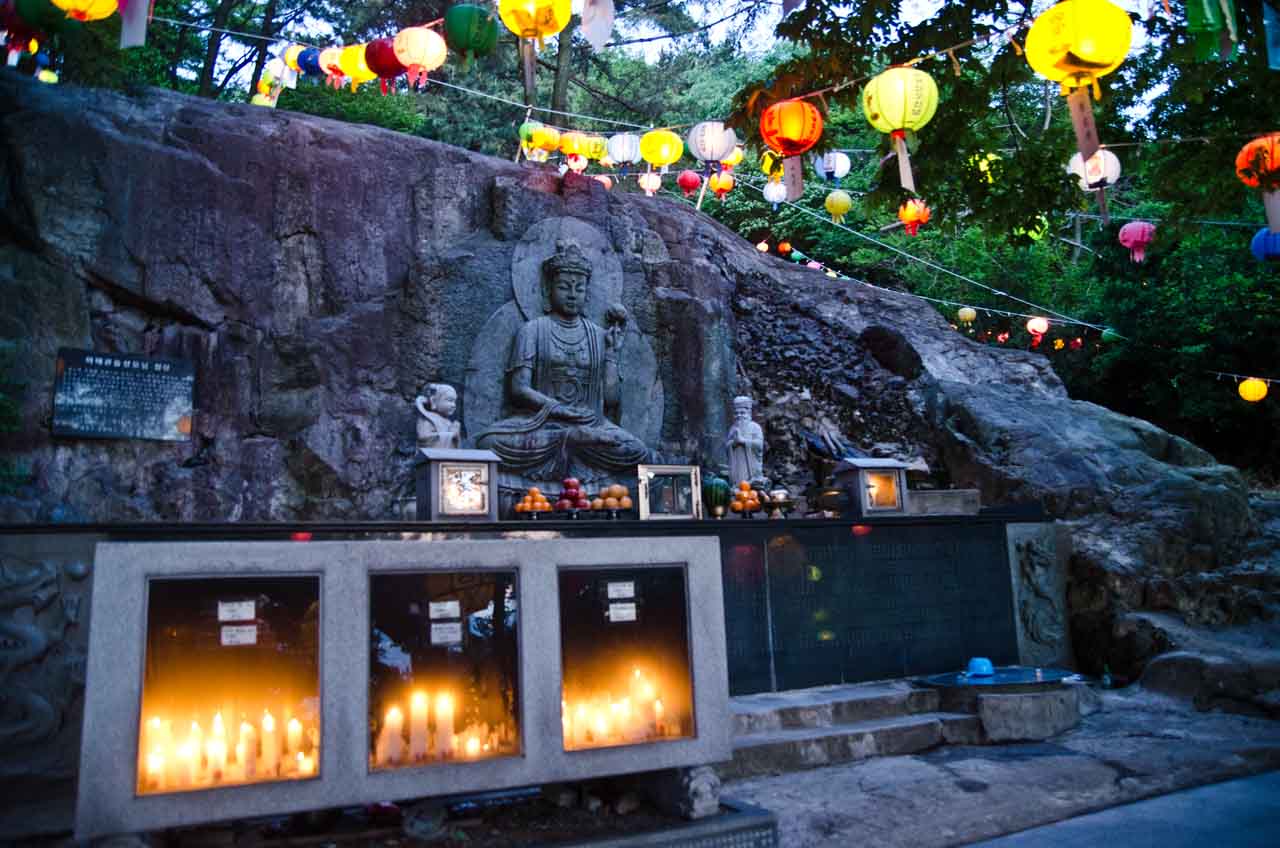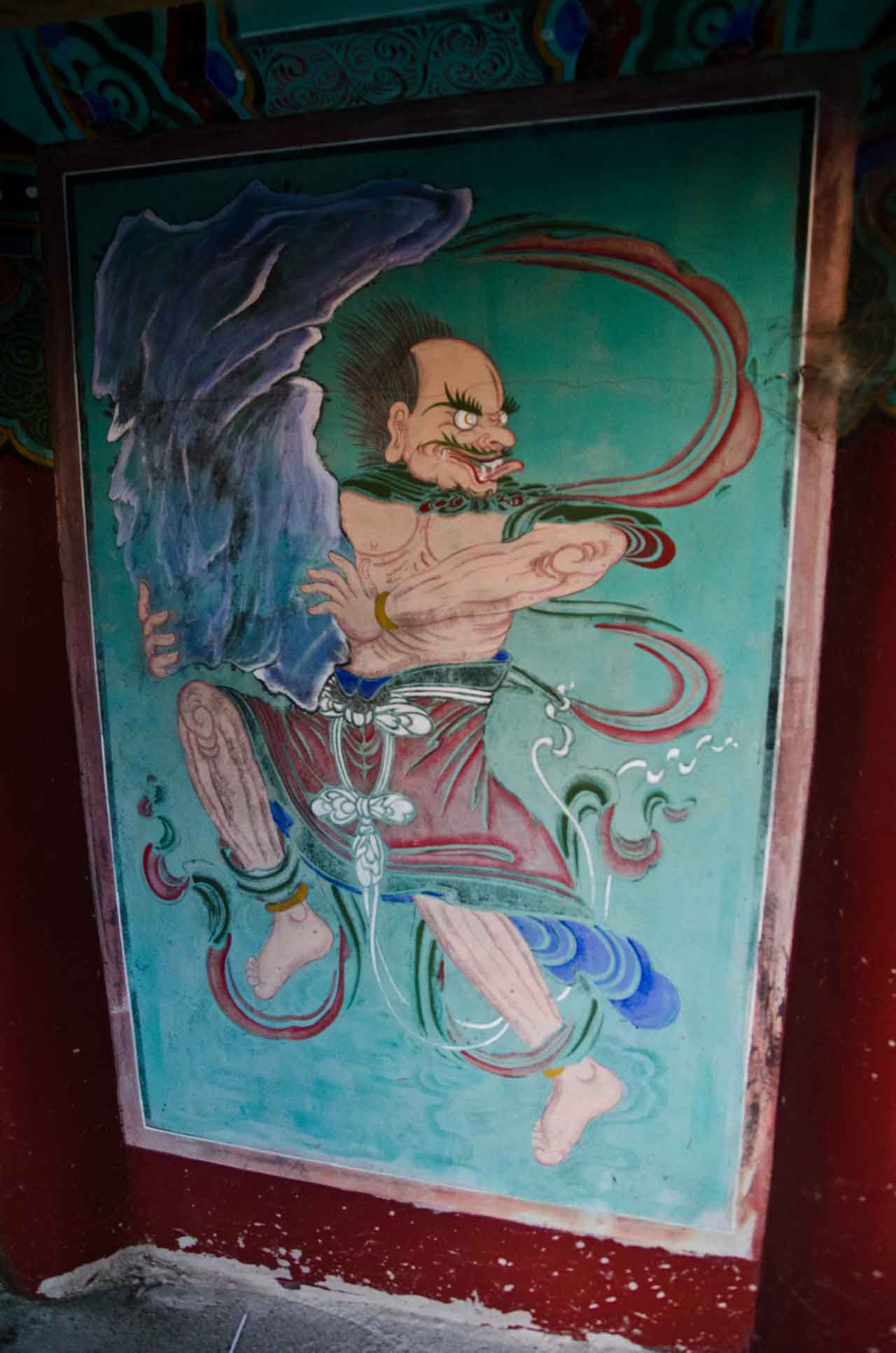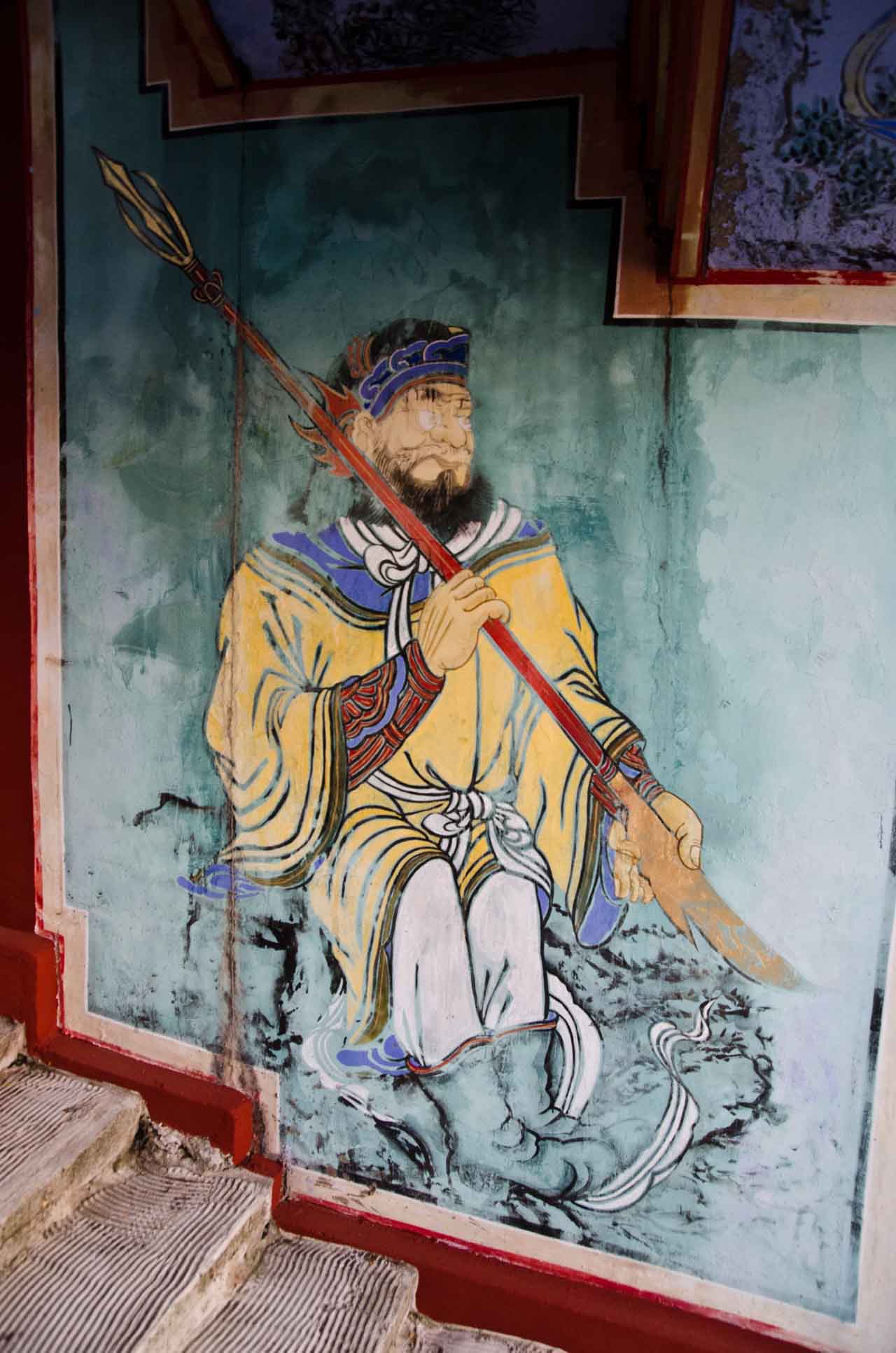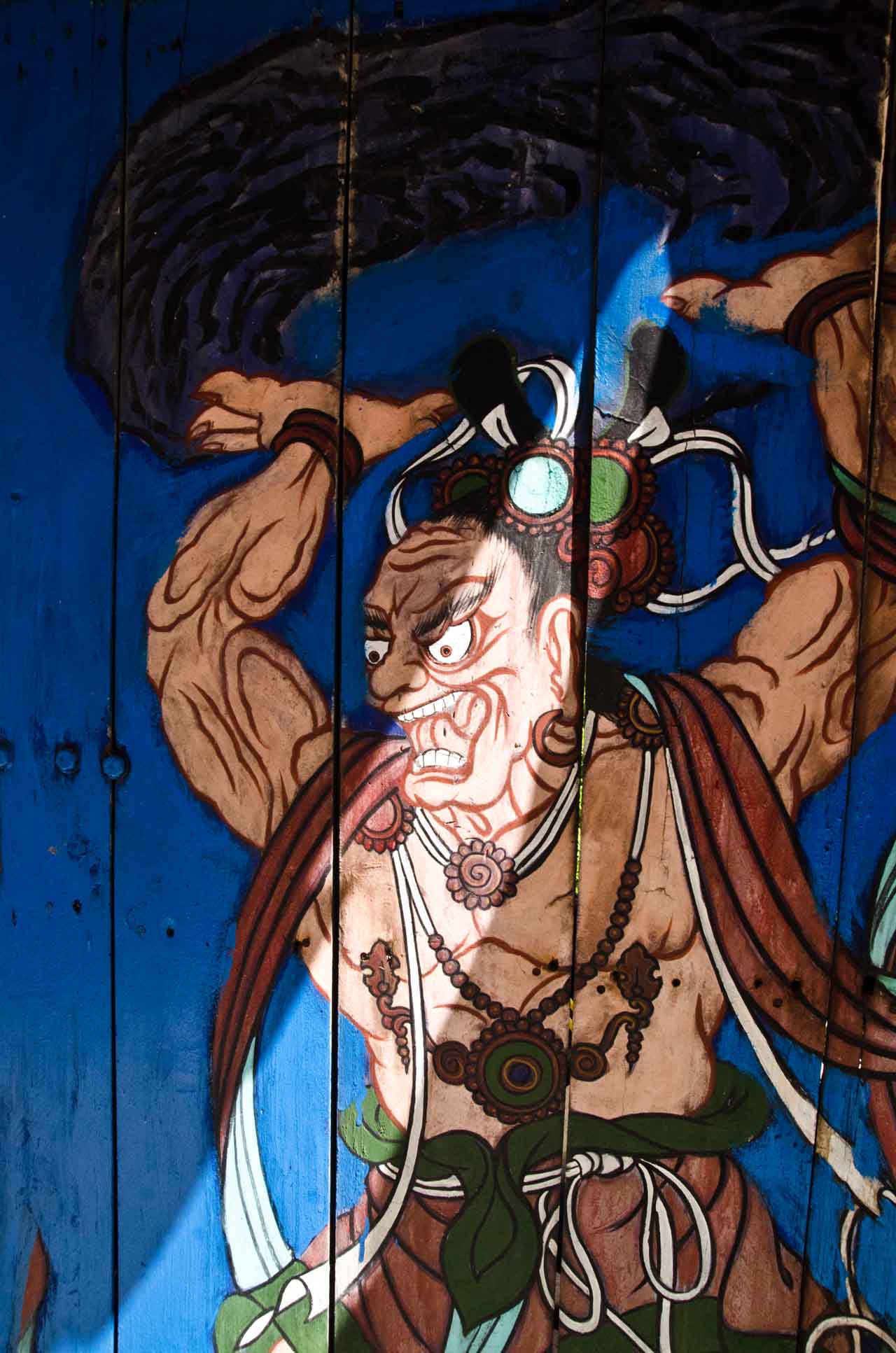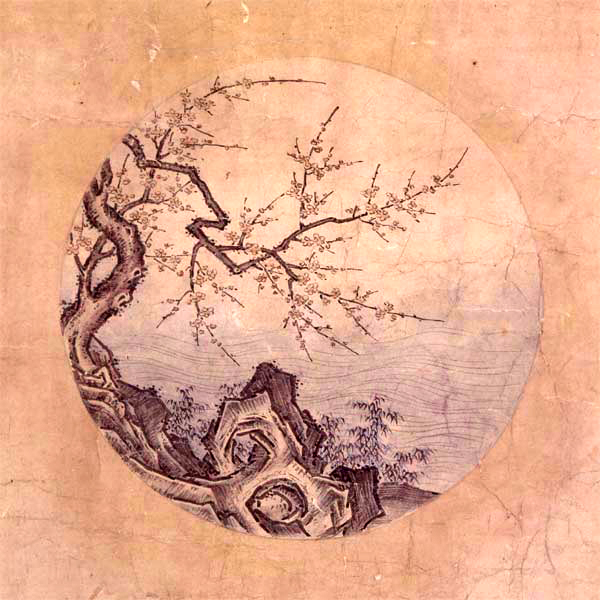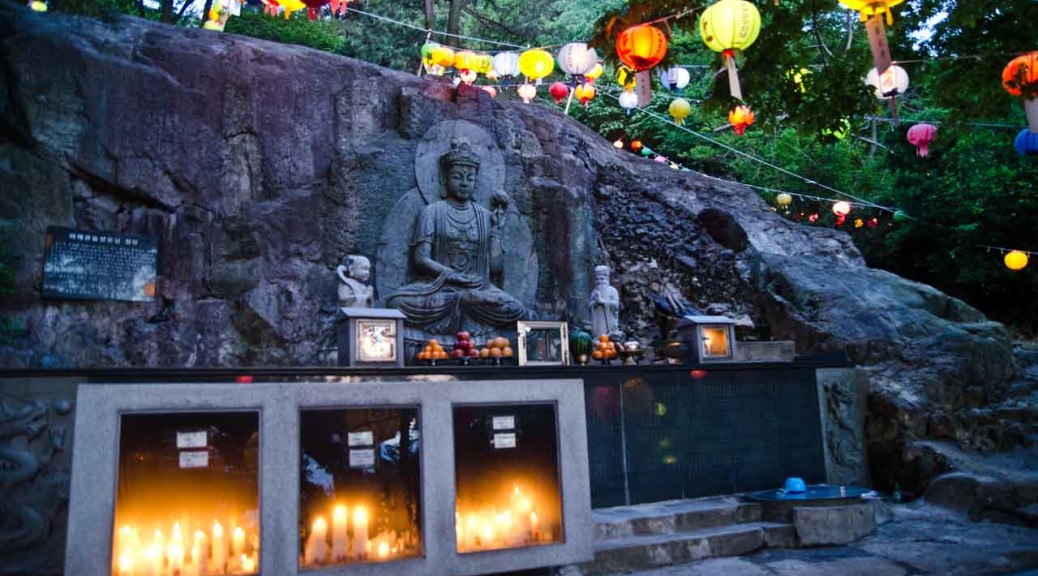
Tag Archives: buddhism

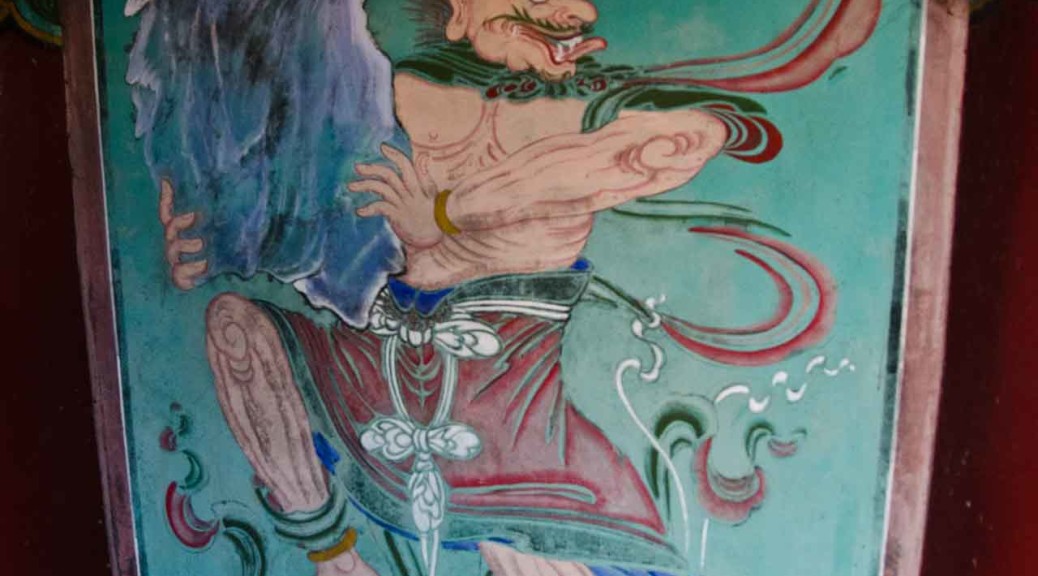
Dvarapala
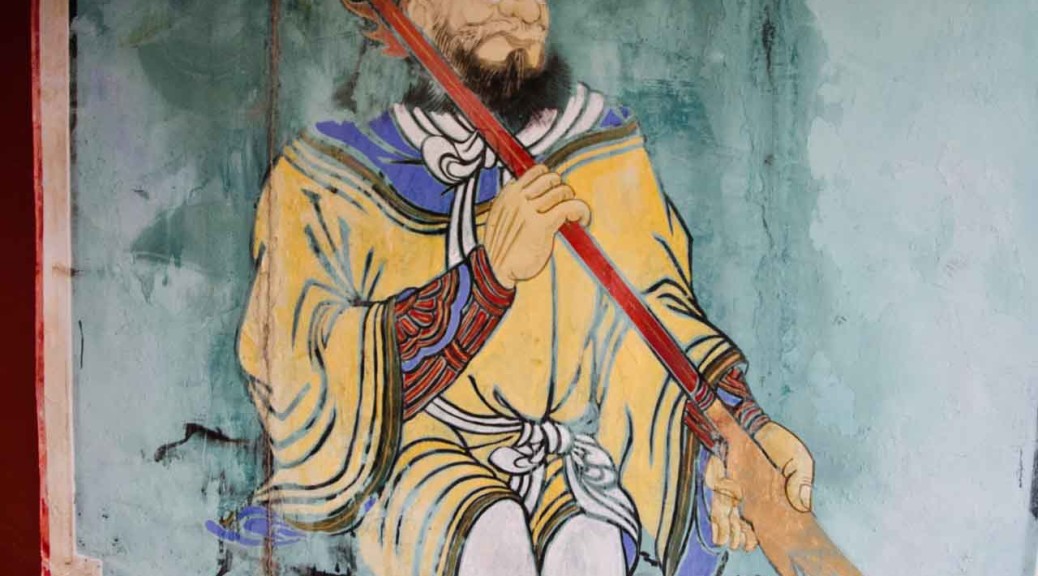
Dvarapala
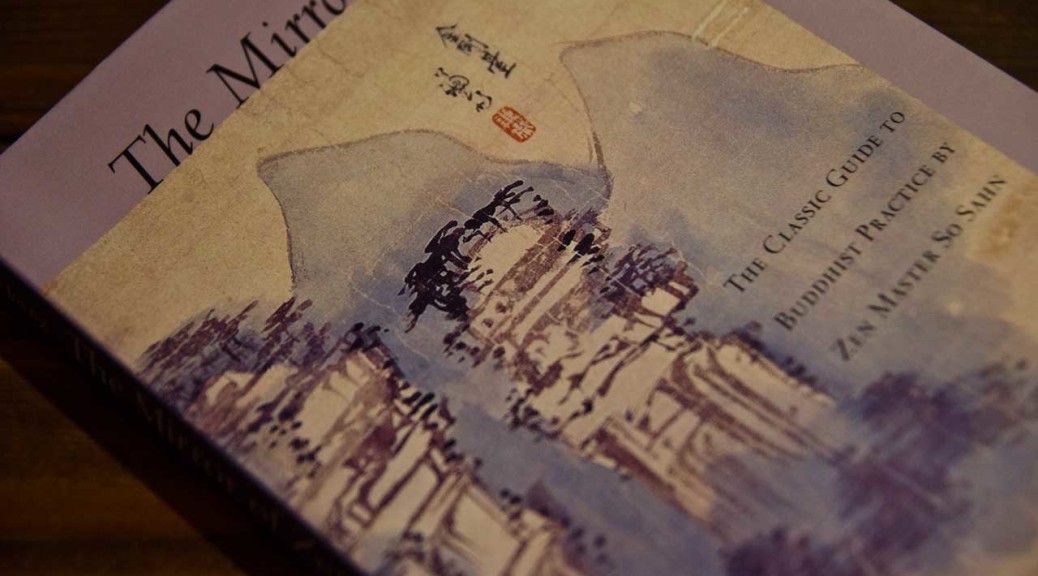
The Mirror of Zen
HyoÌngÌak, et al. The Mirror of Zen: the Classic Guide to Buddhist Practice by Zen Master So Sahn. Shambhala, 2006.
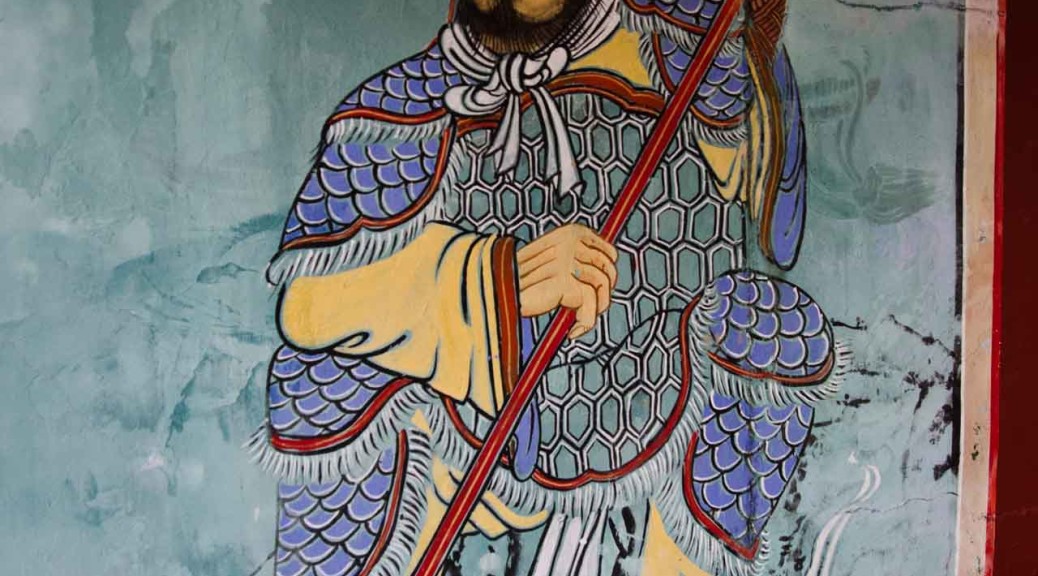
Dvarapala
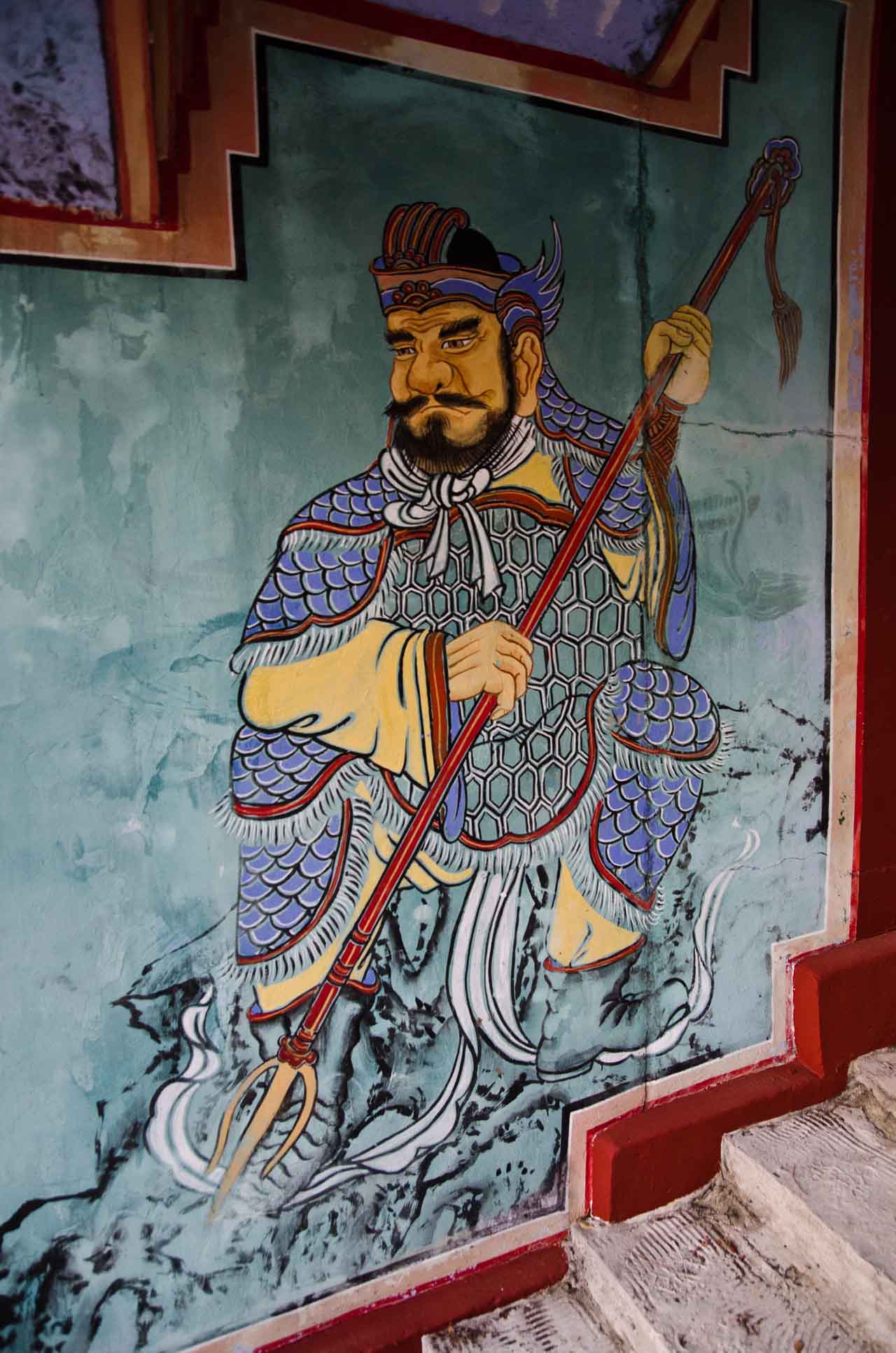 Dvarapala. Yeondo, Busan, South Korea. May, 2017.
Dvarapala. Yeondo, Busan, South Korea. May, 2017.
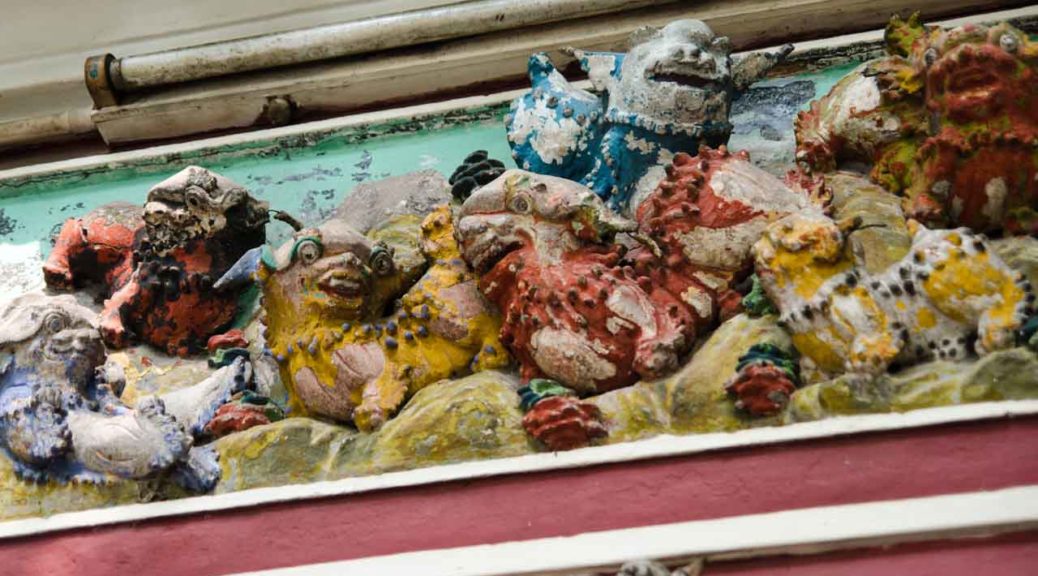
A-Ma
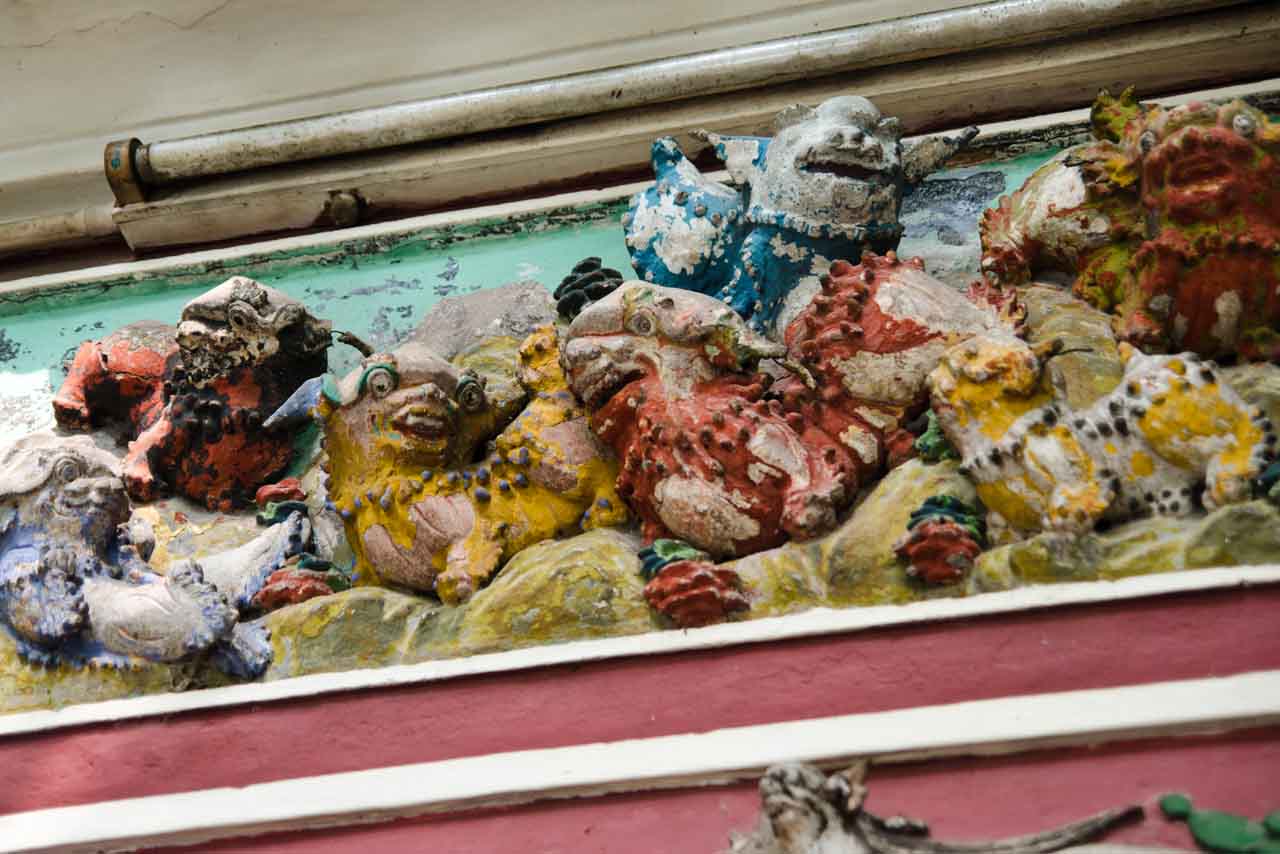 Wall detail. A-Ma Temple, Macau. October, 2015.
Wall detail. A-Ma Temple, Macau. October, 2015.
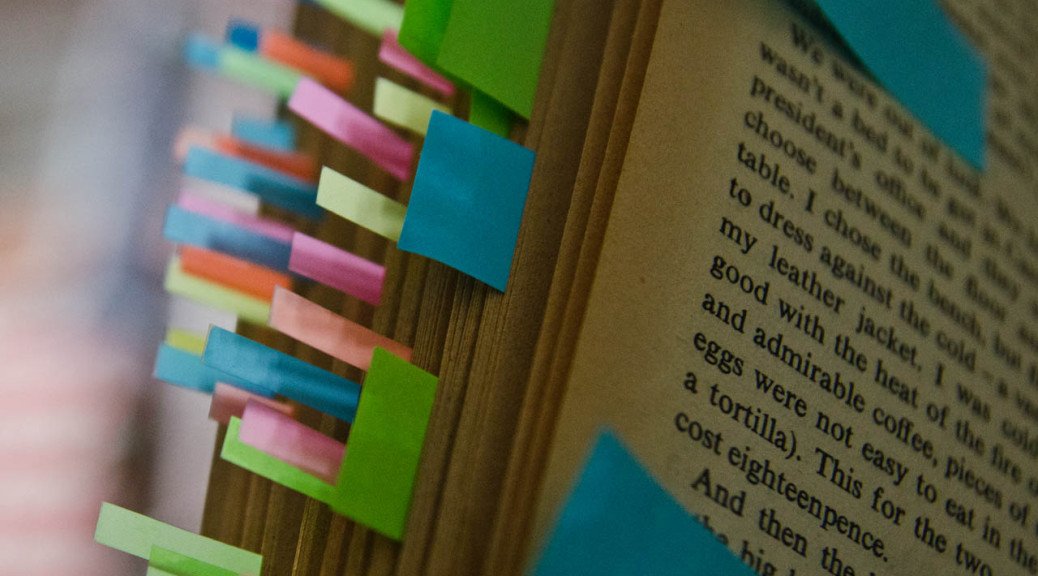
Books July 2017
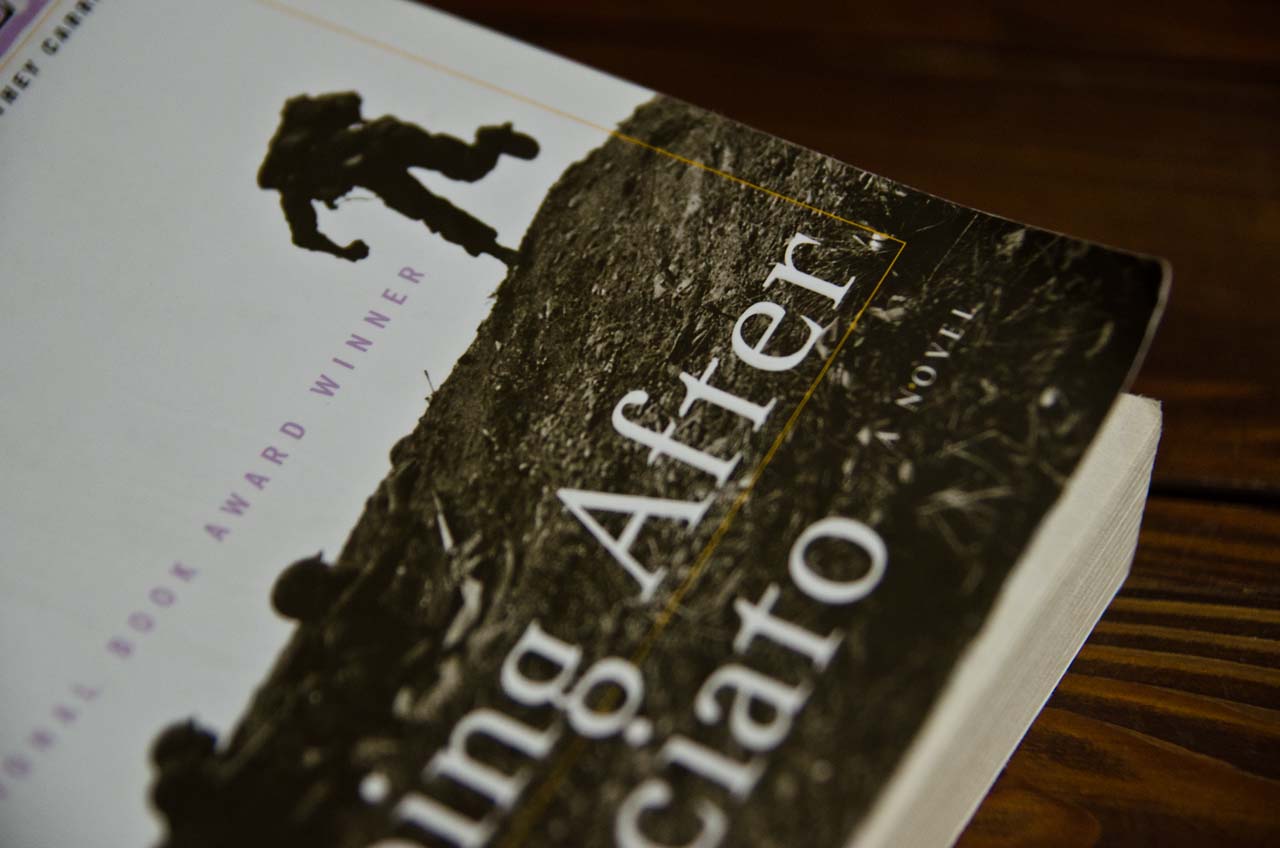 O’Brien, Tim. Going after Cacciato. Broadway Books, 2014. First published 1978.
O’Brien, Tim. Going after Cacciato. Broadway Books, 2014. First published 1978.
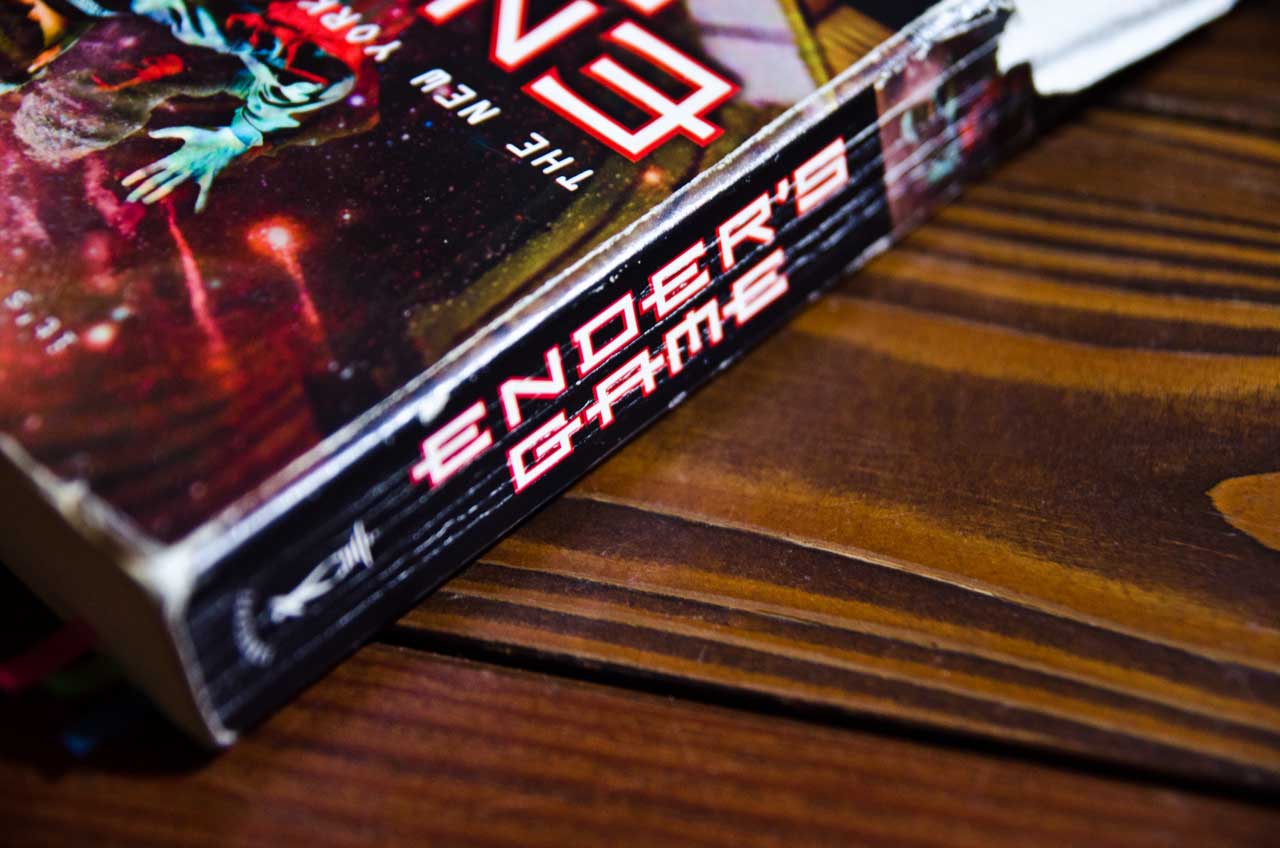 Card, Orson Scott. Ender’s Game. Starscape, 2011. First published 1985.
Card, Orson Scott. Ender’s Game. Starscape, 2011. First published 1985.
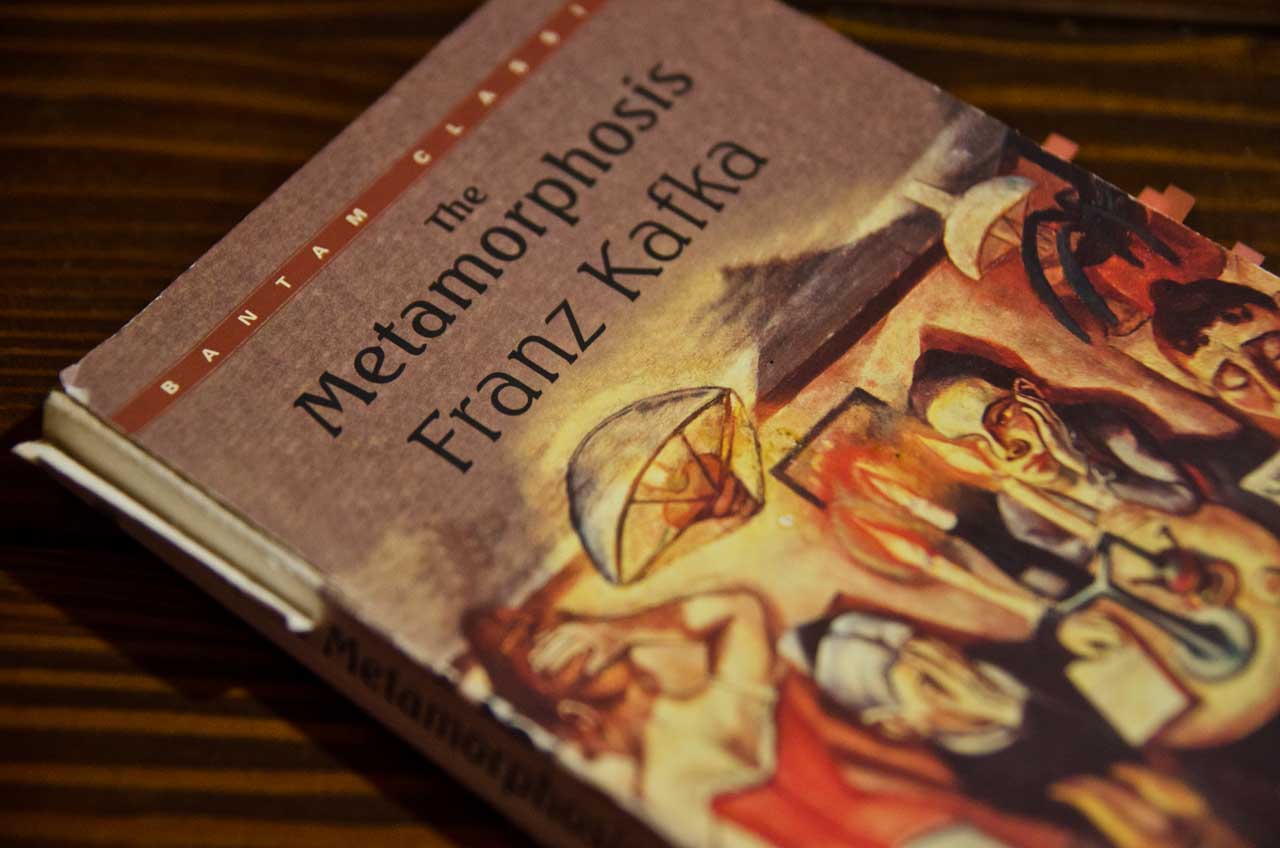 Kafka, Franz, and Stanley Corngold. The Metamorphosis. Bantam Classic, 2004. First published 1915.
Kafka, Franz, and Stanley Corngold. The Metamorphosis. Bantam Classic, 2004. First published 1915.
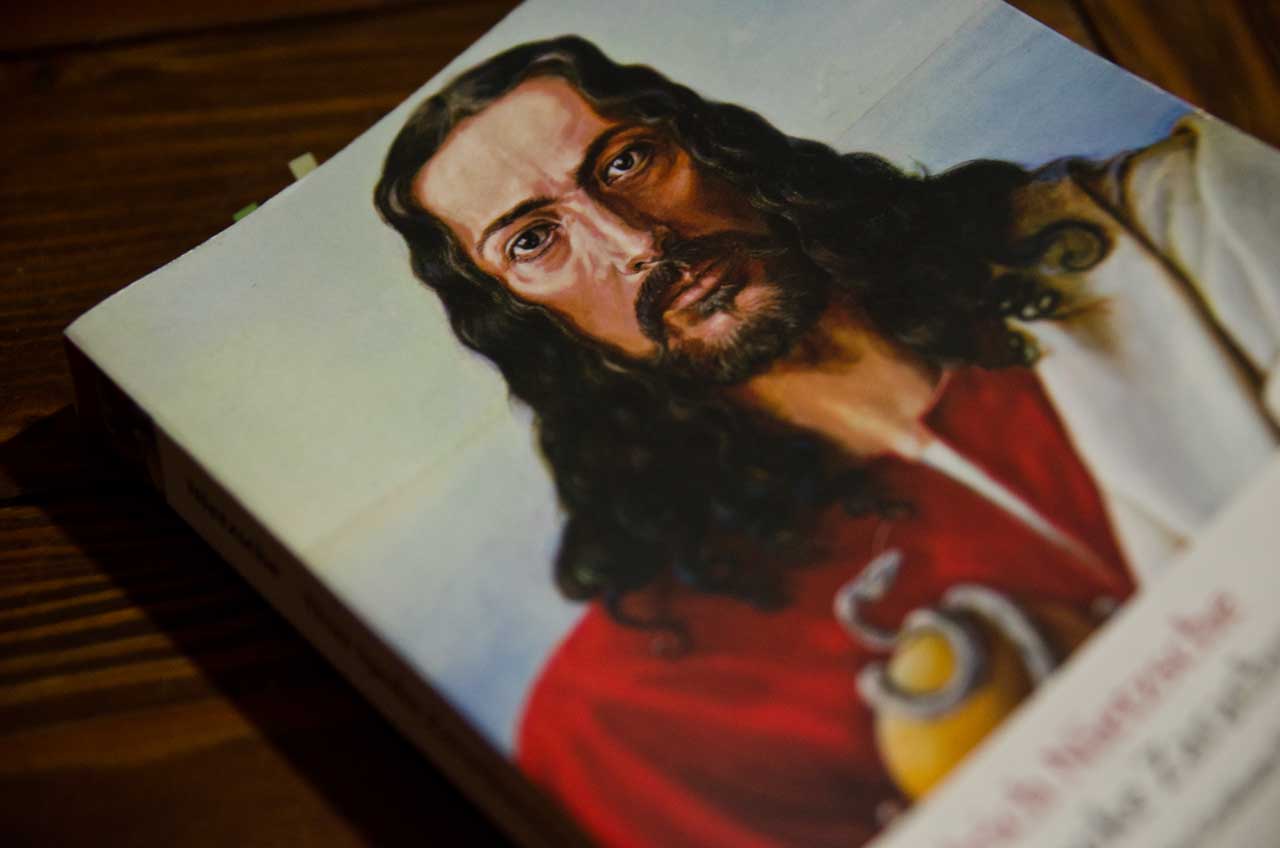 Nietzsche, Friedrich Wilhelm, and Graham Parkes. Thus Spoke Zarathustra: a Book for Everyone and Nobody. Oxford University Press, 2008. First published 1883–1891.
Nietzsche, Friedrich Wilhelm, and Graham Parkes. Thus Spoke Zarathustra: a Book for Everyone and Nobody. Oxford University Press, 2008. First published 1883–1891.
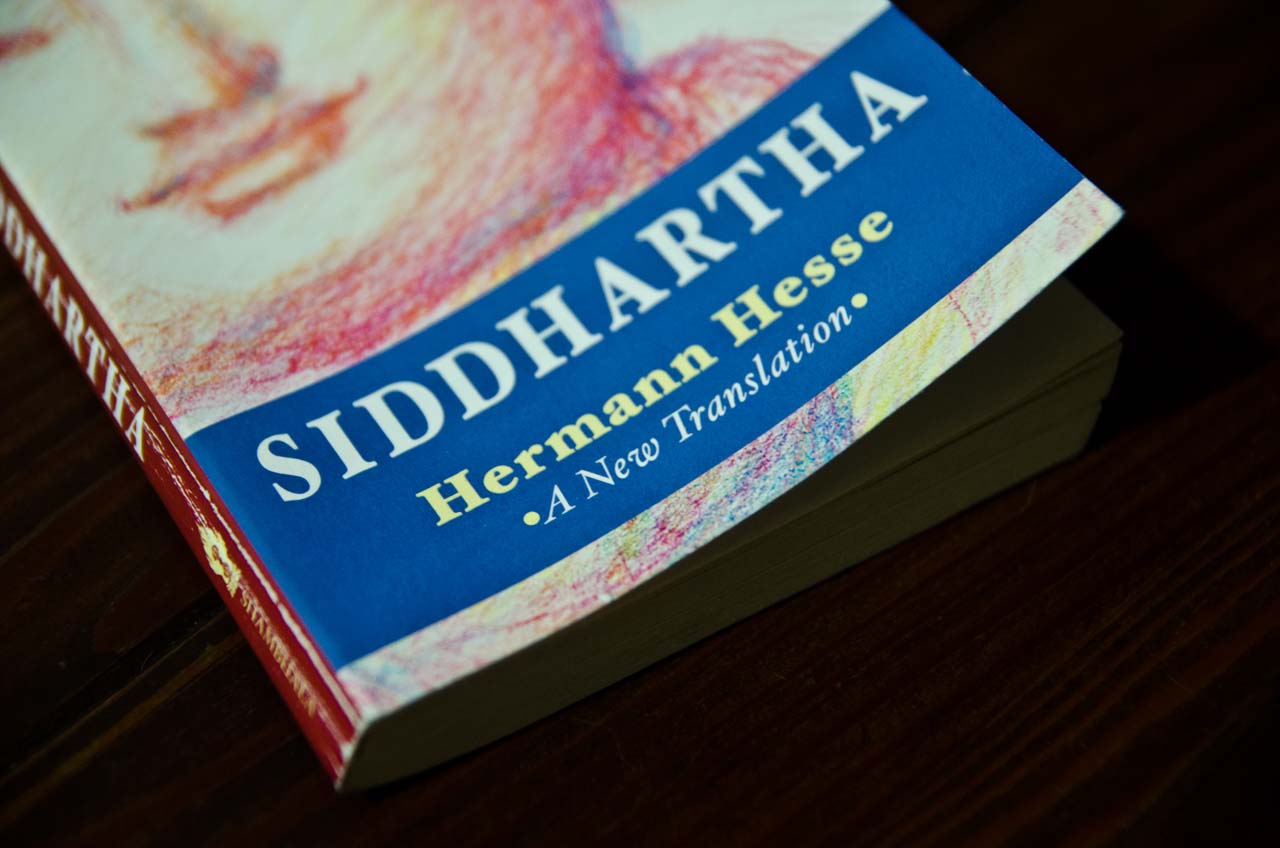 Hesse, Hermann, and Sherab ChoÌdzin. Kohn. Siddhartha. Boston, Massachussets: Shambhala Publications, 2005. Print. First published 1922.
Hesse, Hermann, and Sherab ChoÌdzin. Kohn. Siddhartha. Boston, Massachussets: Shambhala Publications, 2005. Print. First published 1922.
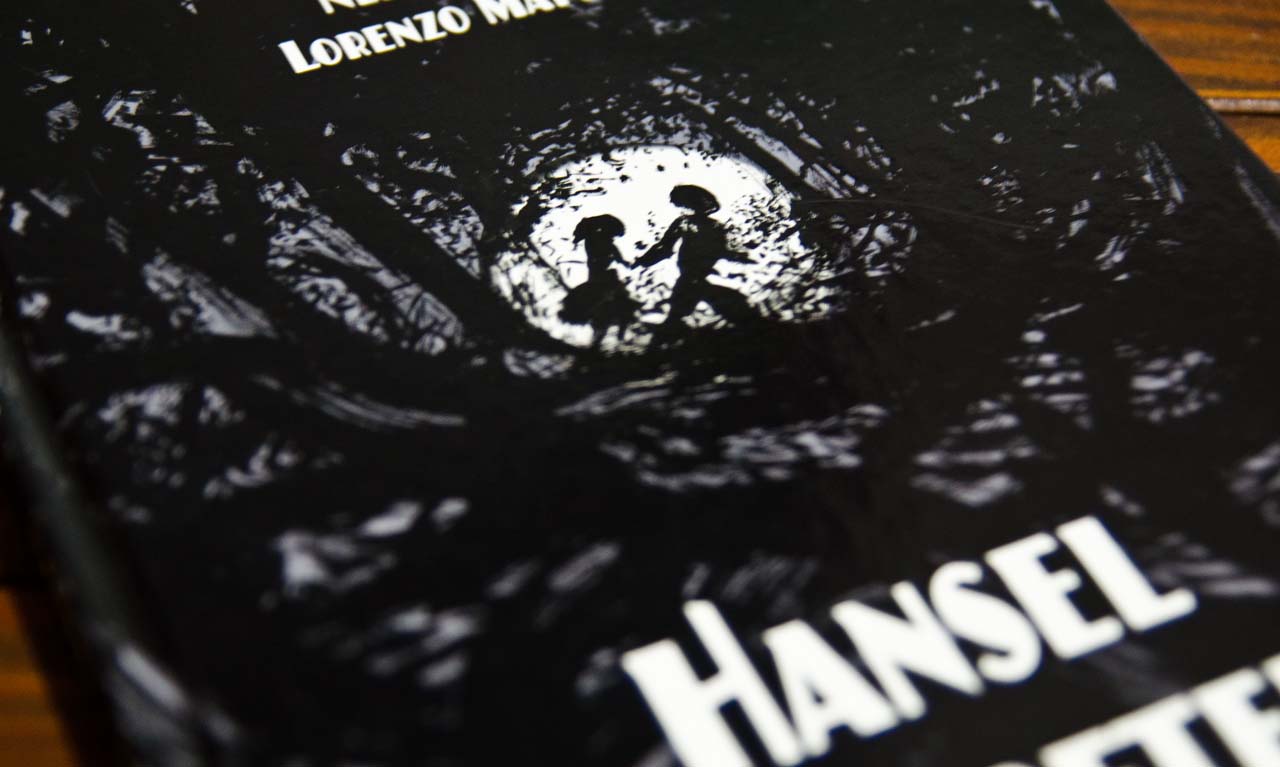 Grimm, Jacob, Neil Gaiman, Lorenzo Mattotti, and Wilhelm Grimm. Hansel & Gretel: A Toon Graphic. New York, NY: Toon, 2014. Print.
Grimm, Jacob, Neil Gaiman, Lorenzo Mattotti, and Wilhelm Grimm. Hansel & Gretel: A Toon Graphic. New York, NY: Toon, 2014. Print.
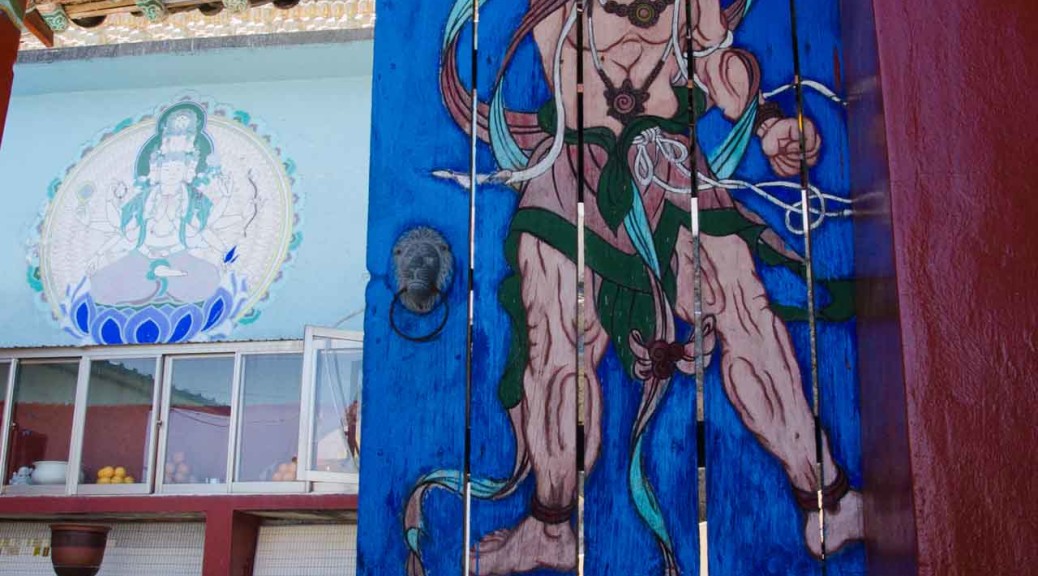
Dvarapala
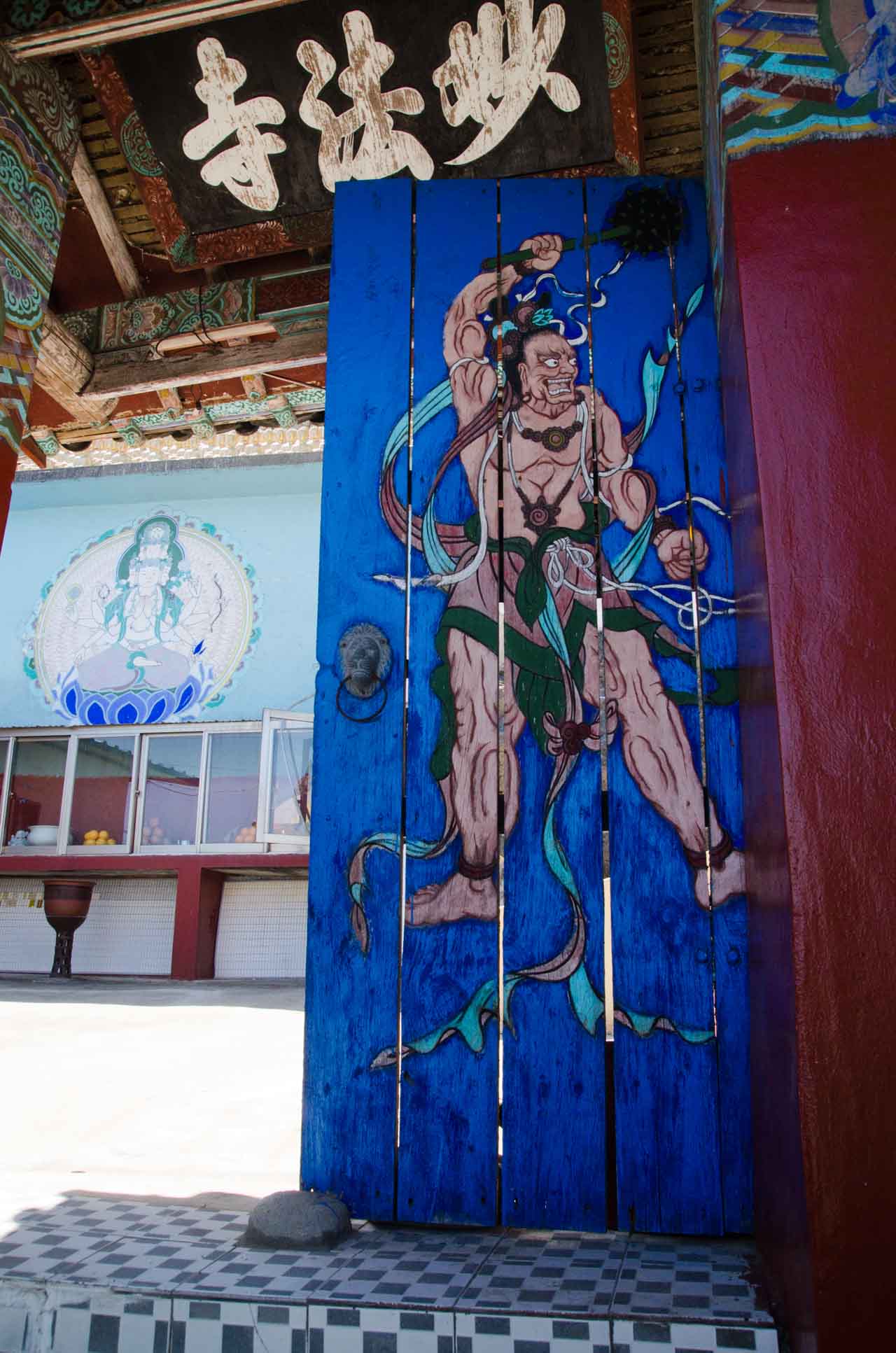 Dvarapala, Nampo, Busan, South Korea. May, 2017.
Dvarapala, Nampo, Busan, South Korea. May, 2017.
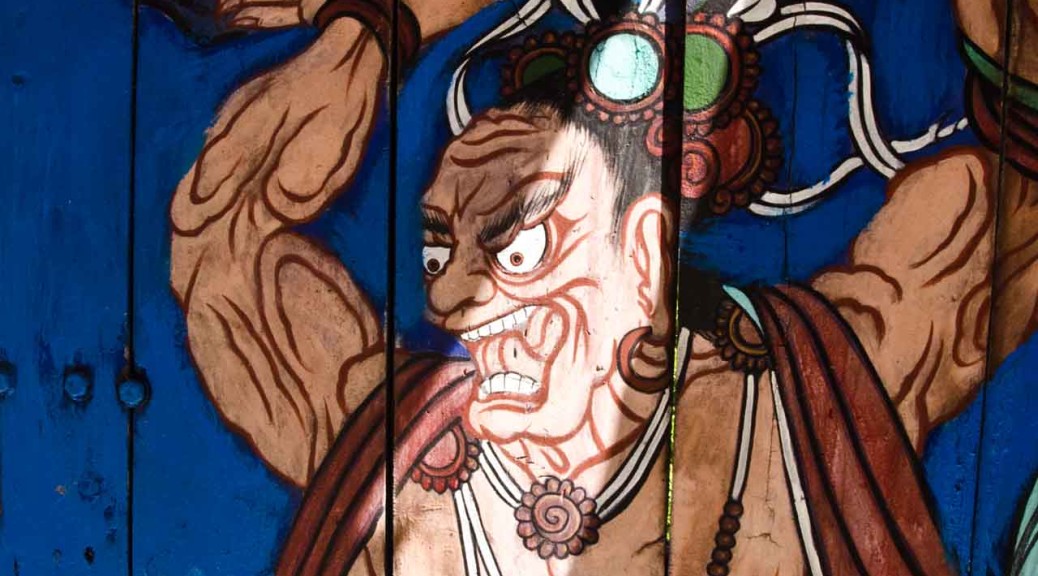
Dvarapala 守门天
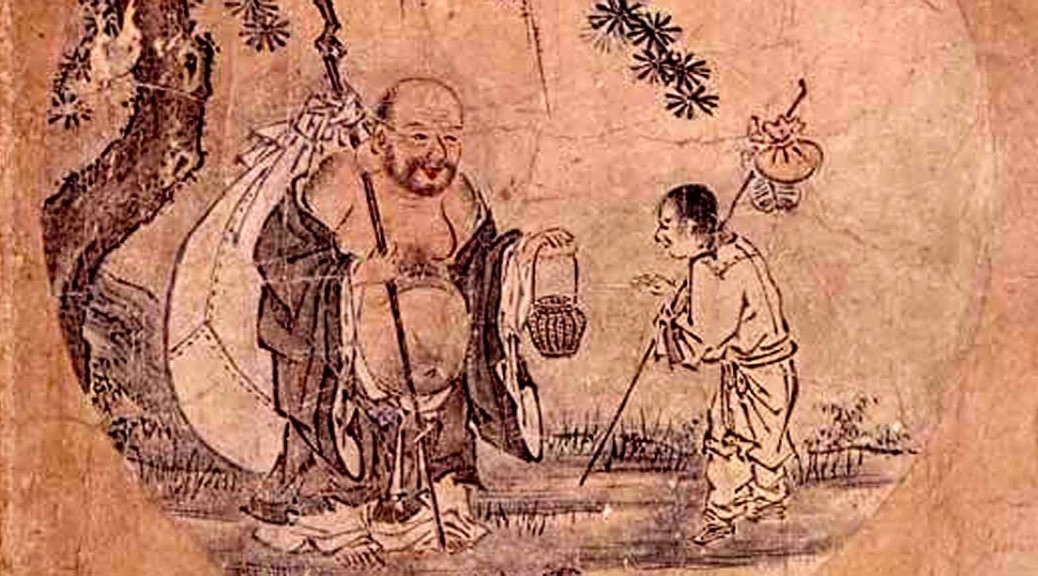
十牛
一
In Search of the Bull
In the pasture of the world,
I endlessly push aside the tall
grasses in search of the Ox.
Following unnamed rivers,
lost upon the interpenetrating
paths of distant mountains,
My strength failing and my vitality exhausted, I cannot find the Ox.
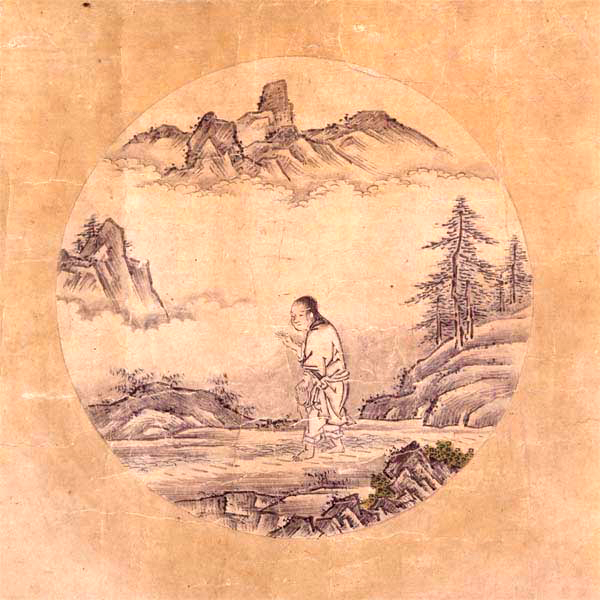
“Discovery of the Footprints” by Tenshō Shūbun. Via Wikimedia.
二
Discovery of the Footprints
Along the riverbank under the trees,
I discover footprints.
Even under the fragrant grass,
I see his prints.
Deep in remote mountains they are found.
These traces can no more be hidden
than one’s nose, looking heavenward.

“Perceiving the Bull” by Tenshō Shūbun. Via Wikimedia.
三
Perceiving the Bull
I hear the song of the nightingale.
The sun is warm, the wind is mild,
willows are green along the shore –
Here no Ox can hide!
What artist can draw that massive head,
those majestic horns?
四
Catching the Bull
I seize him with a terrific struggle.
His great will and power
are inexhaustible.
He charges to the high plateau
far above the cloud-mists,
Or in an impenetrable ravine he stands.
五
Taming the Bull
The whip and rope are necessary,
Else he might stray off down
some dusty road.
Being well-trained, he becomes
naturally gentle.
Then, unfettered, he obeys his master.
六
Riding the Bull Home
Mounting the Ox, slowly
I return homeward.
The voice of my flute intones
through the evening.
Measuring with hand-beats
the pulsating harmony,
I direct the endless rhythm.
Whoever hears this melody
will join me.

“The Bull Transcended” by Tenshō Shūbun. Via Wikimedia.
七
The Bull Transcended
Astride the Ox, I reach home.
I am serene. The Ox too can rest.
The dawn has come. In blissful repose,
Within my thatched dwelling
I have abandoned the whip and ropes.
八
Both Bull and Self Transcended
Whip, rope, person, and Ox –
all merge in No Thing.
This heaven is so vast,
no message can stain it.
How may a snowflake exist
in a raging fire.
Here are the footprints of
the Ancestors.
九
Too many steps have been taken
returning to the root and the source.
Better to have been blind and deaf
from the beginning!
Dwelling in one’s true abode,
unconcerned with and without –
The river flows tranquilly on
and the flowers are red.
Barefooted and naked of breast,
I mingle with the people of the world.
My clothes are ragged and dust-laden,
and I am ever blissful.
I use no magic to extend my life;
Now, before me, the dead trees
become alive.
—
Verses by Kuòān Shīyuǎn
Translation by Senzaki Nyogen (千崎如幻) (1876–1958) and Paul Reps (1895-1990).
Paintings by Tenshō Shūbun (天章周文) (1414-1463
From Ten Bulls Wikipedia article.
See:
http://www.buddhistdoor.com/OldWeb/passissue/9710/sources/art9.htm
http://www.columbia.edu/cu/weai/exeas/resources/oxherding.html
http://www.columbia.edu/cu/weai/exeas/syllabi.html
